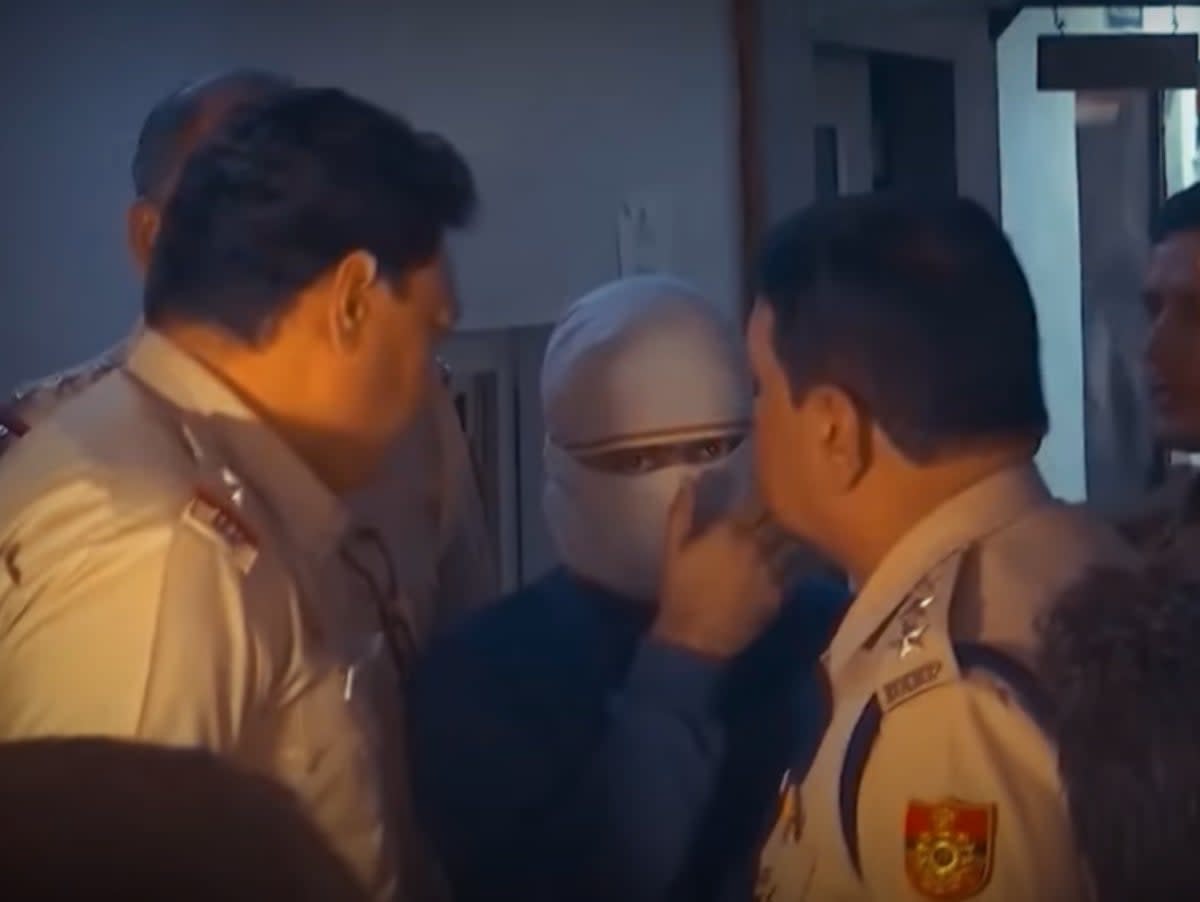How ‘Dexter-inspired’ Delhi murderer was tracked down by victim’s friend

- Oops!Something went wrong.Please try again later.
- Oops!Something went wrong.Please try again later.
A college friend’s alertness is being seen as the reason behind the arrest of a man who allegedly murdered and dismembered his girlfriend in India — a case that has renewed the debate on women’s safety in the subcontinent.
When Shradhha Walker’s texts stopped in May and messages first remained unanswered, and then wouldn’t go through, her college friend Rajat Shukla began to worry about her safety.
Mr Shukla told the police that the victim, 26-year-old Walker, had accused her live-in partner Aftab Poonawala of physically abusing her, according to local news reports in the Mehrauli murder case.
It was Mr Shukla’s growing concern and suspicion that led him to contact Walker’s family who later filed a missing person’s report in a crime that would likely have gone undetected for longer had he not raised the alarm.
After Walker remained incommunicado for a few months, Mr Shukla called Mr Poonawala to check in about her. Mr Poonawala allegedly lied to him and said that he too was unable to get in touch with her. But allayed Mr Shukla’s fears by saying “you know how she is, she will return on her own”.
But Mr Poonawala didn’t remember the date she left, which made Mr Shukla believe that something was off. Mr Shukla warned him that he’ll go to the police if he didn’t tell him what was going on.
Mr Poonawala, a 28-year-old food photographer and blogger, asked him not to approach the police and told Mr Shukla that he’ll let him know when Walker returned.
But all communication stopped from him. Mr Shukla called up Walker’s other friends to find out if she had communicated with them. No one had heard from her in months, it turned out.
Last year, sometime in June, Walker had texted Mr Shukla that she “needed to be rescued” as Mr Poonawala was beating her. She had warned that if she doesn’t get help, he might kill her. Mr Shukla turned up at their apartment and saw Walker covered in bruises, according to the police and media reports.
He told Mr Poonawala that he’ll file a police compliant, but Walker didn’t want to press charges and returned to him two days later.
In October, Mr Shukla finally approached Walker’s brother and informed him that she had been unavailable on phone and that none of her other friends had heard anything from her. This led her father and brother to file a police complaint.
In May this year, Mr Poonawala and Walker had a fight and while trying to “silence” her, he allegedly ended up strangling her, then chopping up her body into 35 pieces and hiding the parts in a fridge, the police said earlier this week.
Local media reports, quoting police sources familiar with the investigation, mentioned that to dispose of the body parts, Mr Poonawala used to walk to dumping yards, cremation grounds and jungle areas. Police said that he discarded the head and the torso after almost two or three months.
The Print, quoting police sources, said that Mr Poonawala stored his ice-cream and cold drinks alongside the body parts in his refrigerator.
Mr Poonawala told the police he was inspired by the award-winning drama crime series “Dexter”. He allegedly said that he kept Walker’s body parts in small black polythene bags inspired by the show’s main character, vigilante serial killer Dexter Morgan, played by Michael C Hall.
Mr Shukla told the police that after meeting Mr Poonawala, her personality changed. “She became very dull. She told me about her relationship, and I even met him. He appeared normal to me. They said they were planning on moving in together.”
Mr Poonawala and Walker met on the dating app Bumble in Mumbai in 2019, fell in love, and decided to move in together despite Walker’s family’s objection to the inter-faith relationship.
“We tried to bring her back home safely. Unfortunately, all we got back was the news of her brutal murder,” Mr Shukla said.
#BreakingNews | Girls are responsible for leaving parents for live-in relationship: Union minister Kaushal Kishore insults #ShraddhaWalkar
"Educated girls to be blamed"
"Get married first, live-ins encourage crime"@kaidensharmaa | @toyasingh | #Shraddha #Vic pic.twitter.com/zoo5IZBCks— News18 (@CNNnews18) November 17, 2022
Meanwhile, a federal minister is drawing flak for victim-blaming. Indian junior minister for the ministry of housing and urban affairs, Kaushal Kishore, said: “Educated girls are to be blamed for their decision to break away from their family to engage in live-in relationships, thereby falling into these traps”.
“If you want to live with someone, get married first, live-ins encourage crime,” he told a news channel.
This despite the fact that the Indian Supreme Court observed that “familial relationships may take the form of domestic, unmarried partnerships or queer relationships”, and noted that an “atypical manifestation of a family unit is as real as its traditional counterpart and deserves protection under the law.”

